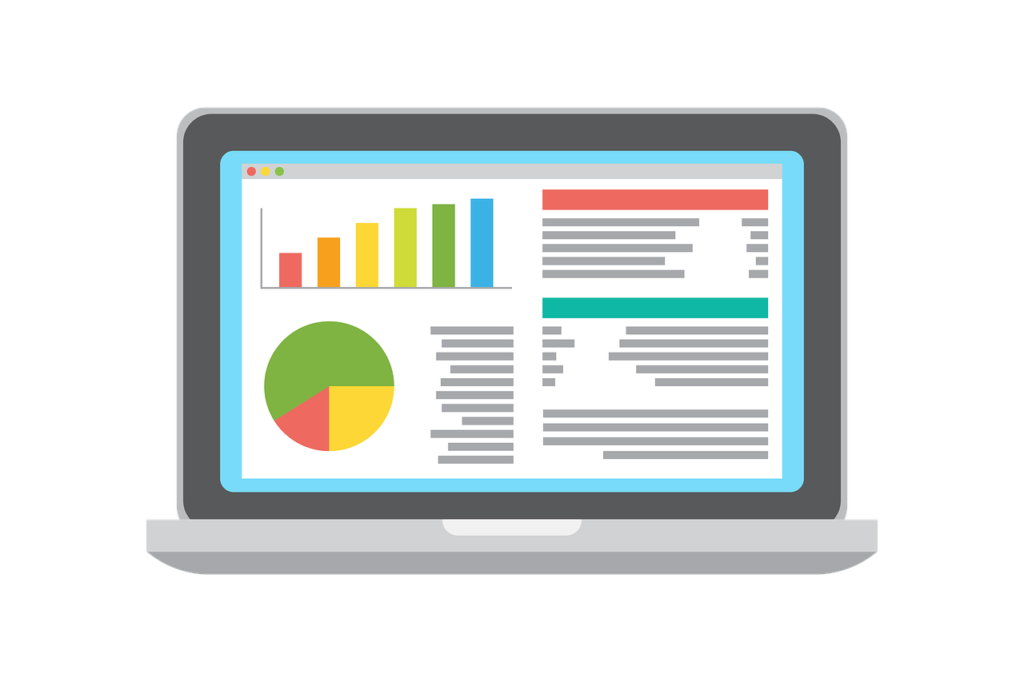In the bustling world of social media, where every like, share, and comment counts, choosing the right management tool can be a game-changer for your business. Today, we’re diving deep into a showdown between two giants in the arena: Zoho Social and Falcon.io. Whether you’re a social media maven or a digital marketing newbie, this guide is your roadmap to finding the tool that will not just meet, but exceed your needs. So, let’s cut to the chase and explore what makes each platform tick, and more importantly, which one could be the champion for your social media strategy.
| Zoho Social | Falcon.io |
|---|---|
 |  |
| G2 Score – 4.6 out of 5 stars | G2 Score – 4.4 out of 5 stars |
| TrustRadius Score – 9.1 out of 10 | TrustRadius Score – 8.1 out of 10 |
Ease of Use: Navigating the Digital Jungle
One of the most critical aspects of any software, let alone social media management tools, is its usability. After all, time is money, and the last thing you need is a steep learning curve slowing you down. Let’s see how Zoho Social and Falcon.io stack up in terms of user-friendliness, dashboard navigation, and overall user experience.
Zoho Social: Simplicity Meets Efficiency
From the get-go, Zoho Social impresses with its clean, intuitive interface. Designed with the end-user in mind, it makes navigating through its features feel like a breeze. Whether you’re scheduling posts, analyzing metrics, or engaging with your audience, Zoho Social ensures that every action is just a few clicks away. It’s particularly appealing to small and medium-sized businesses (SMBs) and digital marketers who appreciate simplicity without sacrificing functionality.
One of the standout features of Zoho Social is its smart scheduling tool, which suggests optimal posting times based on your audience’s online activity. This is a boon for marketers looking to maximize engagement without spending hours on analytics. Moreover, the platform’s collaboration features make it a hit among teams. You can easily share drafts, gather feedback, and approve posts, all within a unified interface.
Falcon.io: Power Packed with Features
On the other side of the ring, we have Falcon.io, a tool that prides itself on offering a comprehensive suite of features for social media management. It’s a robust platform, catering to the needs of larger enterprises and agencies that manage multiple brands across various social channels. With Falcon.io, you’re getting an all-in-one solution that covers everything from content publishing to customer engagement, audience insights, and beyond.
Falcon.io’s dashboard is a powerhouse, packed with tools and analytics designed to give you a 360-degree view of your social media landscape. However, this wealth of features comes with a slightly steeper learning curve. New users may need some time to fully get to grips with the platform’s capabilities. But, once you’re over the initial hump, Falcon.io’s depth becomes its most significant advantage, offering insights and functionalities that few other platforms can match.
The platform excels in its detailed analytics and reporting capabilities, providing deep dives into your social media performance. Furthermore, its content calendar is not just a scheduling tool; it’s a strategic planner that allows you to visualize your content strategy across all channels in one place.
The Verdict on Usability
When it comes to ease of use, Zoho Social and Falcon.io serve two distinct audiences. Zoho Social is the go-to for those who value simplicity, speed, and an intuitive user experience. It’s perfect for SMBs and teams looking for a straightforward, efficient way to manage their social media without getting bogged down by overly complex features.
Falcon.io, meanwhile, is tailored for larger organizations and agencies that require a more robust, feature-rich platform to handle their extensive social media operations. Its comprehensive toolset and detailed analytics make it a powerful ally for those willing to invest the time to master its capabilities.
Choosing between Zoho Social and Falcon.io on the basis of ease of use ultimately boils down to your business size, needs, and how much complexity you’re willing to handle in your social media management tool.
Pricing and Value for Money: Stretching Your Budget
In a world where every penny counts, understanding the pricing structure and the value you get from your investment is paramount when selecting a social media management tool. Let’s break down the pricing models of Zoho Social and Falcon.io, and assess which platform offers the best bang for your buck.
| Zoho Social | Standard Plan: Starting at $10 per month (billed annually) for 1 brand (7 channels) and 2 team members, including basic publishing and monitoring features.Professional Plan: At $30 per month (billed annually), adding more advanced features like the bulk scheduler and custom reports for 1 brand.Premium Plan: Starting at $40 per month (billed annually), for 1 brand with additional features like ad integration and advanced analytics.Agency Plan: At $200 per month (billed annually), managing up to 10 brands, designed for agencies and larger teams.Agency Plus Plan: Starting at $300 per month (billed annually), with the capacity to manage up to 20 brands. |
| Falcon.io | Falcon.io offers customized pricing based on the needs of the business, focusing on a comprehensive suite of social media marketing and customer experience management tools. They offer:Essential Plan: For essential social media management needs. Full Suite: Including all features for social media management, customer experience, and audience management. |
Zoho Social: Budget-Friendly without Compromise
Zoho Social is known for its competitive pricing, offering a range of plans that cater to different needs and budgets. From freelancers and small businesses to larger enterprises, there’s a plan for everyone. What’s commendable is how Zoho manages to pack a substantial amount of features into even its most basic plans, ensuring that smaller teams don’t miss out on essential tools.
The platform operates on a tiered pricing model, starting with a very affordable entry-level option that includes core functionalities like multi-channel publishing, basic analytics, and team collaboration. As you move up the tiers, you gain access to more sophisticated features, such as advanced analytics, custom reporting, and premium support. Zoho Social also offers a free trial, allowing potential users to test the waters before committing financially.
For businesses mindful of costs but unwilling to compromise on quality, Zoho Social presents a compelling proposition. Its transparent pricing and no hidden fees ethos mean you know exactly what you’re paying for, making it easier to budget and plan for your social media management needs.
Falcon.io: Premium Pricing for a Comprehensive Suite
Falcon.io sits at the higher end of the pricing spectrum, reflecting its positioning as a comprehensive, enterprise-grade solution. The platform is tailored for larger organizations and agencies that require an extensive set of features, including deep analytics, sophisticated audience segmentation, and customer engagement tools.
Pricing for Falcon.io is not as straightforward as Zoho Social. Potential users need to contact Falcon.io for a custom quote, which is tailored to their specific needs and scale of operations. This approach allows Falcon.io to offer bespoke solutions but also means that pricing can be significantly higher than more straightforward, tiered pricing models.
The value proposition of Falcon.io lies in its all-encompassing suite of tools that can manage every aspect of social media marketing within a single platform. For organizations that can leverage the full power of Falcon.io, the investment can be justified through efficiencies gained, insights uncovered, and the impact on the bottom line. However, for smaller teams or businesses with more modest needs, Falcon.io may represent an unnecessary expenditure.
Making the Choice: Balancing Costs with Needs
When it comes to pricing and value for money, the choice between Zoho Social and Falcon.io largely depends on the size of your organization, the complexity of your social media strategy, and your budget.
Zoho Social stands out as the more accessible option, offering a robust set of features at a price point that is hard to beat. It’s an ideal choice for SMBs, startups, and anyone looking for a cost-effective solution that doesn’t skimp on capabilities.
Falcon.io, with its premium pricing model, is suited for larger enterprises and agencies that require a comprehensive, all-in-one platform to manage extensive social media portfolios. If your organization has the budget and the need for an advanced toolset, Falcon.io offers a level of depth and sophistication that can transform your social media efforts.
In the end, understanding your specific needs and how each platform can meet those needs is key to making an informed decision. Both Zoho Social and Falcon.io offer distinct advantages, but the best choice for you will depend on the balance between what you need from a social media management tool and what you’re willing to invest.
Integration Capabilities: Connecting Your Digital Tools
In today’s interconnected digital world, the ability of a social media management tool to seamlessly integrate with other software and services is crucial. These integrations can significantly enhance productivity, streamline workflows, and provide deeper insights by connecting your social media efforts with other aspects of your business. Let’s compare how Zoho Social and Falcon.io fare in terms of integration capabilities.
Zoho Social: Streamlined Connections for Efficiency
Zoho Social boasts a wide range of integrations with other Zoho products and third-party applications, making it a versatile tool for businesses that use multiple systems. Being part of the Zoho ecosystem, it naturally integrates flawlessly with other Zoho apps like Zoho CRM, Zoho Campaigns, and Zoho Desk. This integration facilitates a seamless flow of information across platforms, allowing for more coordinated marketing efforts and better customer relationship management.
Beyond the Zoho suite, Zoho Social also connects with several popular third-party applications, including Google Analytics, Canva, and Bitly. These integrations are particularly useful for enhancing your social media content, measuring campaign performance, and managing links efficiently. However, compared to some competitors, Zoho Social’s third-party integration list is not the longest, which might be a limiting factor for businesses that rely heavily on a wide array of digital tools.
Falcon.io: A Hub of Connectivity
Falcon.io stands out with its robust integration capabilities, especially for larger enterprises that use a variety of software solutions. The platform is designed to be a central hub for your digital marketing efforts, integrating not just with social media networks but also with a broad spectrum of marketing, customer service, and CRM tools.
One of Falcon.io’s key strengths is its API, which allows for custom integrations, making it highly adaptable to any tech stack. This flexibility is invaluable for businesses with specific needs that off-the-shelf integrations can’t meet. Falcon.io also offers native integrations with major platforms like Salesforce, HubSpot, and Google Analytics, ensuring that users can easily connect their social media activities with their sales, marketing, and analytics efforts.
Moreover, Falcon.io’s focus on customer experience shines through its integrations with customer service platforms, enabling businesses to manage social customer service more effectively by funneling messages from various channels into a single inbox.
Choosing the Right Integration Ecosystem
The choice between Zoho Social and Falcon.io in terms of integration capabilities boils down to the specific needs of your business and the complexity of your existing digital toolset.
Zoho Social is an excellent choice for small to medium-sized businesses, especially those already using other Zoho products. Its seamless integration within the Zoho ecosystem and with key third-party applications provides a solid foundation for most social media management needs.
Falcon.io, on the other hand, is better suited for larger organizations that require a more extensive and customizable integration framework. Its ability to serve as a central hub for a wide range of marketing, sales, and customer service tools makes it a powerful option for enterprises looking to tightly weave their social media strategies into their broader digital marketing efforts.
Ultimately, assessing your current and future integration needs will guide you to the tool that best fits your business, ensuring that your social media management is not just effective but also efficiently interconnected with your overall digital strategy.

Related: Check out our free SEO suite

Analytics and Reporting: Measuring Success in the Social Sphere
In the dynamic landscape of social media, the ability to track, analyze, and report on your performance is not just important—it’s essential. Effective analytics tools can help you understand your audience, refine your strategy, and demonstrate ROI. Let’s dive into how Zoho Social and Falcon.io compare in their analytics and reporting capabilities.
Zoho Social: Insightful Analytics for Strategic Decisions
Zoho Social provides a comprehensive suite of analytics tools that cater to the needs of businesses looking to gauge their social media performance accurately. The platform offers detailed reports on various metrics such as engagement rates, follower growth, and post performance. These insights allow marketers to understand what resonates with their audience and adjust their strategies accordingly.
One of the key strengths of Zoho Social’s analytics is its user-friendly presentation of data. Reports are visually appealing and easy to understand, making it straightforward for users to derive actionable insights. Additionally, Zoho Social enables users to customize their reports by selecting specific metrics that matter most to their business goals.
The platform also offers competitor analysis, a feature that allows you to benchmark your social media performance against your competitors. This can be incredibly valuable for strategic planning and positioning.
Falcon.io: Advanced Analytics for Deep Dives
Falcon.io takes analytics and reporting to the next level, offering a rich array of advanced features designed for deep analysis. It provides a detailed overview of your social media activities across multiple channels, offering insights into audience behavior, campaign performance, and content effectiveness.
One of Falcon.io’s standout features is its ability to segment data in various ways, allowing for granular analysis. Users can break down their audience by demographics, behavior, and engagement levels, which helps in tailoring content and campaigns more precisely. Additionally, Falcon.io offers sentiment analysis, which can gauge the mood and tone of the conversations around your brand online. This is particularly useful for managing your brand’s reputation and responding appropriately to your audience’s sentiment.
Falcon.io’s reporting capabilities are highly customizable, enabling users to create detailed reports that align with their specific objectives. The platform also facilitates easy sharing of reports across teams, ensuring that insights are accessible to all stakeholders involved in decision-making processes.
Making the Right Choice for Your Analytics Needs
When it comes to analytics and reporting, both Zoho Social and Falcon.io offer robust solutions, but they cater to different needs and preferences.
Zoho Social is ideal for businesses that require a straightforward, user-friendly tool to track their social media performance. Its intuitive reports and customizable options make it a great choice for small to medium-sized businesses that need to make quick, informed decisions without getting lost in overly complex data.
Falcon.io, with its advanced analytics and deep-dive capabilities, is better suited for larger organizations or those with more sophisticated analytics needs. Its detailed segmentation, sentiment analysis, and customizable reporting options provide a comprehensive understanding of social media activities, making it a powerful tool for enterprises looking to leverage in-depth insights for strategic advantage.
Ultimately, your choice between Zoho Social and Falcon.io should be guided by the complexity of your analytics needs, the size of your business, and the level of detail you require in your reporting. Both platforms offer valuable insights, but the right tool for you will depend on how deep you need to go into your social media analytics.
Customer Support and Community: Navigating Challenges Together
In the fast-paced world of social media, having access to reliable customer support and a supportive community can make a significant difference. Whether it’s a technical glitch or a feature query, timely and effective support ensures that your social media operations run smoothly. Let’s examine how Zoho Social and Falcon.io stand in terms of customer support and community engagement.
Zoho Social: Responsive Support and Resources
Zoho Social prides itself on providing a high level of customer support, with various channels available for users to seek assistance. These include email support, live chat, and phone support, ensuring that users can reach out in the way that suits them best. Zoho Social’s response times are generally commendable, with quick turnaround times for queries and issues.
Apart from direct support, Zoho Social offers a wealth of online resources, including a comprehensive knowledge base, user guides, and FAQs. These resources are designed to help users self-navigate through common questions and challenges, empowering them to make the most of the platform.
Moreover, Zoho Social benefits from being part of the larger Zoho ecosystem, which has a vibrant user community. This community is an excellent resource for sharing best practices, tips, and insights, not just about Zoho Social, but about digital marketing and business growth strategies in general.
Falcon.io: Dedicated Support and Learning Hub
Falcon.io provides its users with dedicated customer support, tailored to meet the needs of larger organizations and enterprises. Support is available through multiple channels, including email, live chat, and phone, with a focus on providing personalized assistance. Falcon.io’s customer service team is noted for its professionalism and expertise, capable of handling complex queries and issues.
In addition to direct support, Falcon.io offers an extensive learning hub, Falcon Academy, where users can access training modules, video tutorials, and best practice guides. This educational resource is designed to help users maximize their use of the platform, covering everything from basic functionalities to advanced features and strategies.
Falcon.io also fosters a community of users through its customer forums and social media channels. These forums are a space for users to connect, share experiences, and offer mutual support. The platform encourages active participation, enabling users to learn from each other and from the collective knowledge of the Falcon.io community.
Evaluating Customer Support and Community Engagement
When choosing between Zoho Social and Falcon.io, considering the level and type of customer support and community engagement they offer is crucial. Both platforms excel in providing robust support systems and valuable learning resources, but they cater to slightly different audiences.
Zoho Social is well-suited for small to medium-sized businesses looking for responsive, multi-channel support alongside a wealth of self-help resources and a broad community. Its support system is designed to be accessible and efficient, ensuring that businesses of all sizes can find the help they need when they need it.
Falcon.io, with its dedicated support and comprehensive learning hub, is aimed at larger organizations and enterprises that may have more complex needs and require more personalized assistance. Its customer support is geared towards providing in-depth help, and Falcon Academy is an invaluable resource for users looking to deepen their knowledge and skills.
Ultimately, the choice between Zoho Social and Falcon.io in terms of customer support and community should align with your business’s size, complexity, and the level of assistance you anticipate needing. Both platforms offer strong support structures, but your specific needs will determine which one is the better fit for you.
Content Creation and Collaboration: Crafting Engaging Social Media Posts
Content is king in the realm of social media, and the ability to create captivating posts that resonate with your audience is crucial. Equally important is the collaboration aspect, especially for teams working together to curate content, schedule posts, and manage engagement. Let’s delve into how Zoho Social and Falcon.io address content creation and collaboration, helping teams produce compelling content efficiently.
Zoho Social: Streamlining Content Creation and Teamwork
Zoho Social excels in providing a user-friendly content creation interface, making it easy for users to craft, edit, and schedule posts across multiple social media platforms. The platform offers a range of tools to enhance your posts, including a built-in image editor and the ability to attach media directly from your library or cloud storage. This simplifies the process of creating visually appealing content that attracts engagement.
When it comes to collaboration, Zoho Social shines with features designed to facilitate teamwork. The platform allows team members to work together on drafts, share feedback, and approve content before it goes live. There’s also a shared content calendar, providing a comprehensive view of all scheduled posts, making it easier to plan and coordinate content across different channels.
Additionally, Zoho Social’s role-based permissions ensure that team members have access to the features and information they need while maintaining control over who can publish content. This is particularly beneficial for larger teams or agencies managing multiple clients, as it helps streamline workflows and enhance productivity.
Falcon.io: Empowering Advanced Content Strategy and Collaboration
Falcon.io offers a sophisticated content creation and collaboration environment tailored for brands with complex content strategies. The platform’s content calendar is not just a scheduling tool; it’s a strategic planner that enables teams to visualize their content distribution across all channels, ensuring consistency and maximizing impact.
The content creation tools within Falcon.io are designed for efficiency and creativity, with features that allow users to design compelling posts, preview how they’ll look on different platforms, and collaborate in real-time. Falcon.io supports a wide range of media types and integrates with creative software, making it easier to produce high-quality content.
For collaboration, Falcon.io provides an advanced workflow where team members can assign tasks, leave comments, and track changes to content pieces. This is complemented by customizable approval processes, ensuring that every piece of content aligns with brand standards before publication.
Falcon.io’s emphasis on collaboration extends to its reporting features, where teams can analyze content performance and share insights directly within the platform. This fosters a culture of continuous improvement, with teams able to quickly adapt strategies based on real-time data.
Choosing the Right Tool for Content and Collaboration
The decision between Zoho Social and Falcon.io for content creation and collaboration will largely depend on the complexity of your social media strategy and the size of your team.
Zoho Social is ideal for small to medium-sized businesses looking for an intuitive, straightforward solution that covers all the basics of content creation and team collaboration. Its user-friendly interface and practical collaboration tools make it an excellent choice for teams seeking efficiency and simplicity.
Falcon.io, with its advanced content planning and collaboration features, is better suited for larger organizations or agencies that require a more robust platform to manage their sophisticated content strategies. Its comprehensive toolset and emphasis on teamwork make it a powerful option for brands aiming to elevate their social media presence through coordinated efforts and strategic content planning.
Ultimately, your choice should align with your content creation needs, the complexity of your collaboration workflows, and the level of detail you require in managing your social media content strategy.
Conclusion
Choosing between Zoho Social and Falcon.io for your social media management boils down to understanding your specific needs, team size, and business goals. Zoho Social offers a budget-friendly, intuitive platform ideal for small to medium-sized businesses seeking simplicity and efficiency in their social media efforts. Its user-friendly interface, combined with effective scheduling, analytics, and collaboration tools, make it a strong contender for those looking to streamline their social media management without overwhelming costs.
On the other hand, Falcon.io caters to larger organizations and agencies requiring a comprehensive suite of advanced features, including deep analytics, robust content creation and collaboration tools, and extensive integration capabilities. Its ability to provide detailed insights and manage complex social media strategies makes it a powerful tool for enterprises aiming to elevate their online presence. Ultimately, whether you prioritize ease of use and affordability with Zoho Social or the depth and breadth of features in Falcon.io, both platforms offer unique advantages. Your choice should align with your strategic needs, ensuring your social media management tool not only fits your current operations but also supports your future growth.
Read next





















